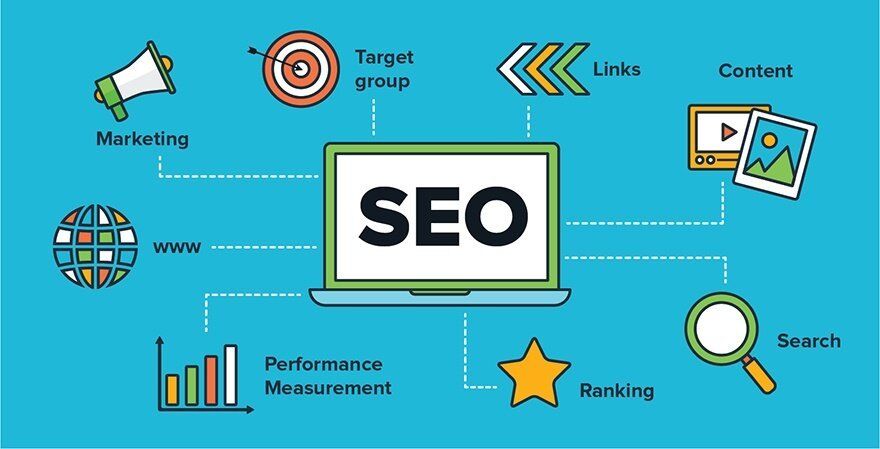In today’s digital landscape, establishing a strong online profile is most important for businesses across all industries. This article aims to explore all the fetchers of law firm SEO, offering insights into strategies that can bolster visibility and engagement with prospective clients.
Table of Contents
- Why SEO is important
- What Lawyer SEO Offers
- Basic Tips for Search Engine Optimization
- Things you Should Avoid In SEO
- FAQ
- How long does it take to see results from SEO efforts?
- Is it necessary to hire a professional SEO agency for law firms?
- Can social media marketing complement law firm SEO efforts?
- How can law firms stay updated with changing SEO trends?
- What role does content quality play in law firm SEO?
- Are PPC advertising campaigns necessary alongside SEO efforts?
- Conclusion
Understanding the dynamics of search engine optimization is the first step for law firms aiming to thrive in the competitive online sphere. By leveraging law firm SEO tactics, legal practices can improve their rankings on search results, thereby increasing their chances of being discovered by individuals seeking law firm business services.
Why SEO is important
While talking about search engine optimization for law firms, it’s crucial to delve into the multifaceted benefits it offers in today’s digital landscape. In a world where online visibility reigns supreme, a strategic approach to search engine optimization is not just advantageous but essential for legal practices to thrive. Beyond merely appearing in search engine results, a well-executed search engine optimization strategy can elevate a law firm’s online presence to new heights, ensuring that it stands out amidst fierce competition.
What Lawyer SEO Offers
On-Page Optimization
On-page optimization involves refining various elements within a webpage to enhance its visibility on search engines. This includes strategically incorporating relevant keywords into the content, meta tags, and image descriptions. By aligning these elements with the targeted keywords, websites can increase their chances of ranking higher in search engine results pages (SERPs). Also, optimizing meta tags such as title tags and meta descriptions helps search engines understand the content and relevance of a webpage better.
Keyword Research
Keyword research is a crucial aspect of any successful online marketing for law firm strategy. By identifying the keywords and phrases that potential clients are most likely to use when searching for legal assistance, law firms can optimize their website content to rank higher in search engine results. This process involves analyzing search volume, competition, and relevance to ensure that the selected keywords effectively target the desired audience.
Content Marketing
Content marketing involves the strategic creation and dissemination of valuable content tailored to the interests and pain points of a specific audience. By focusing on delivering high-quality information, businesses aim to establish trust and credibility with their target market. This approach not only serves to educate and engage potential customers but also helps in boosting brand visibility and authority within the industry.
Link Building
Link building is a crucial aspect of search engine optimization strategy, involving the acquisition of backlinks from reputable websites. These backlinks serve as “votes of confidence” from other sites, signaling to search engines the credibility and authority of the linked website. By obtaining links from high-quality, relevant sources, a website can improve its search engine rankings and organic traffic. However, it’s important to prioritize quality over quantity, as search engines increasingly value the relevance and authority of linking domains.
Local Business SEO
Local Business SEO involves strategies to enhance a company’s visibility in local search results, targeting potential customers within a specific geographic area. This optimization includes tactics like optimizing Google My Business listings, ensuring accurate business information, and leveraging location-based keywords. By focusing on local search engine optimization, businesses can improve their chances of appearing in local search engine results pages (SERPs), ultimately driving more foot traffic and online conversions

Basic Tips for Search Engine Optimization
Regularly Update the Content
Regularly updating website content is the best step to ensure it remains aligned with evolving legal trends and regulations. By frequently revisiting and refreshing the content, businesses can maintain accuracy and relevance, enhancing their credibility and trustworthiness among visitors. Consistent updates also demonstrate a commitment to staying informed and compliant with the latest legal requirements, fostering a positive impression of professionalism and diligence.
Optimize Your Website
Optimizing your website is a must for enhancing user experience in today’s digital landscape. A faster website load time ensures that visitors can access content quickly, reducing bounce rates and keeping users engaged. Mobile responsiveness ensures that the website displays properly across various devices, catering to the growing number of users accessing the internet via smartphones and tablets.
Monitor The Performance
Monitoring and analyzing website performance is crucial for understanding user behavior and optimizing online presence. Tools like Google Analytics offer comprehensive insights into website traffic, including visitor demographics, popular pages, and conversion rates. By regularly reviewing these metrics, businesses can identify strengths and weaknesses in their online strategy, allowing for informed decision-making and targeted improvements.
Things you Should Avoid In SEO
Keyword Stuffing
Keyword stuffing, a practice involving the excessive repetition of keywords, is often employed with the intention of boosting search engine rankings. However, this strategy can backfire as search engines like Google penalize websites engaging in such practices. Overloading content with keywords can lead to a poor user experience, making it harder for visitors to find relevant information. Consequently, websites that indulge in keyword stuffing may suffer from decreased visibility and lower rankings in search results.
Ignoring local SEO
Ignoring local SEO can severely impact a law firm’s online presence and visibility within its desired locality. By neglecting to optimize for local searches, such as including location-specific keywords and ensuring accurate business listings, the firm risks losing potential clients who are actively seeking legal services in their area. Without proper local search engine optimization strategies in place, the firm may struggle to compete with local competitors and appear in relevant search results for individuals seeking legal assistance nearby.
Neglecting Website Usability
Neglecting website usability can significantly harm a business’s online presence. When a website is poorly designed, it becomes frustrating for users to navigate, leading to a higher bounce rate as visitors quickly leave in search of easier-to-use alternatives. Additionally, search engines like Google prioritize user experience, meaning websites with low usability may rank lower in search results, reducing their visibility to potential clients.

FAQ
How long does it take to see results from SEO efforts?
Search engine optimization is a long-term strategy, and results may vary depending on various factors such as competition, website authority, and the effectiveness of optimization efforts. Generally, significant improvements may be observed within several months to a year of consistent search engine optimization implementation.
Is it necessary to hire a professional SEO agency for law firms?
While some law firms may choose to handle SEO in-house, partnering with a freelancer SEO expert can provide expertise, resources, and industry insights that may lead to more effective results.
Can social media marketing complement law firm SEO efforts?
Absolutely. Social media platforms offer additional channels to engage with potential clients, share informative content, and drive traffic to the law firm’s website, thus complementing its efforts.
How can law firms stay updated with changing SEO trends?
Staying updated with SEO trends and best practices is essential for personal injury lawyer to maintain a competitive edge. This can be achieved through continuous learning, attending industry conferences, and following reputable search engine optimization blogs and publications.
What role does content quality play in law firm SEO?
Content quality is paramount in law firm search engine optimization. High-quality, informative content not only attracts and engages potential clients but also signals credibility and authority to search engines, thereby improving rankings and visibility.
Are PPC advertising campaigns necessary alongside SEO efforts?
While PPC advertising campaigns can supplement search engine optimization efforts and provide immediate results, they are not necessarily required. With effective strategies, law firms can achieve sustainable organic growth and reduce reliance on paid advertising over time.
Conclusion
In conclusion, law firm SEO is a multifaceted approach that requires careful planning, execution, and ongoing optimization. By understanding the key elements, best practices, and common pitfalls of search engine optimization, law firms can enhance their online visibility, attract qualified leads, and ultimately grow their client base.



